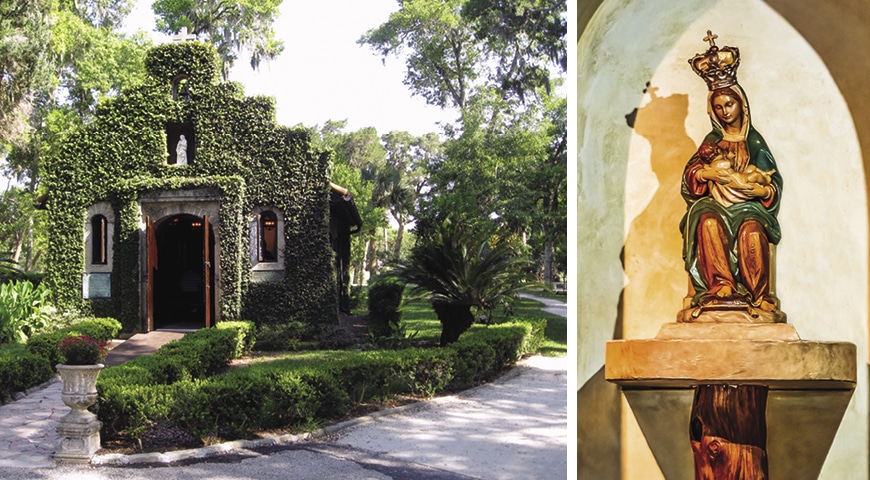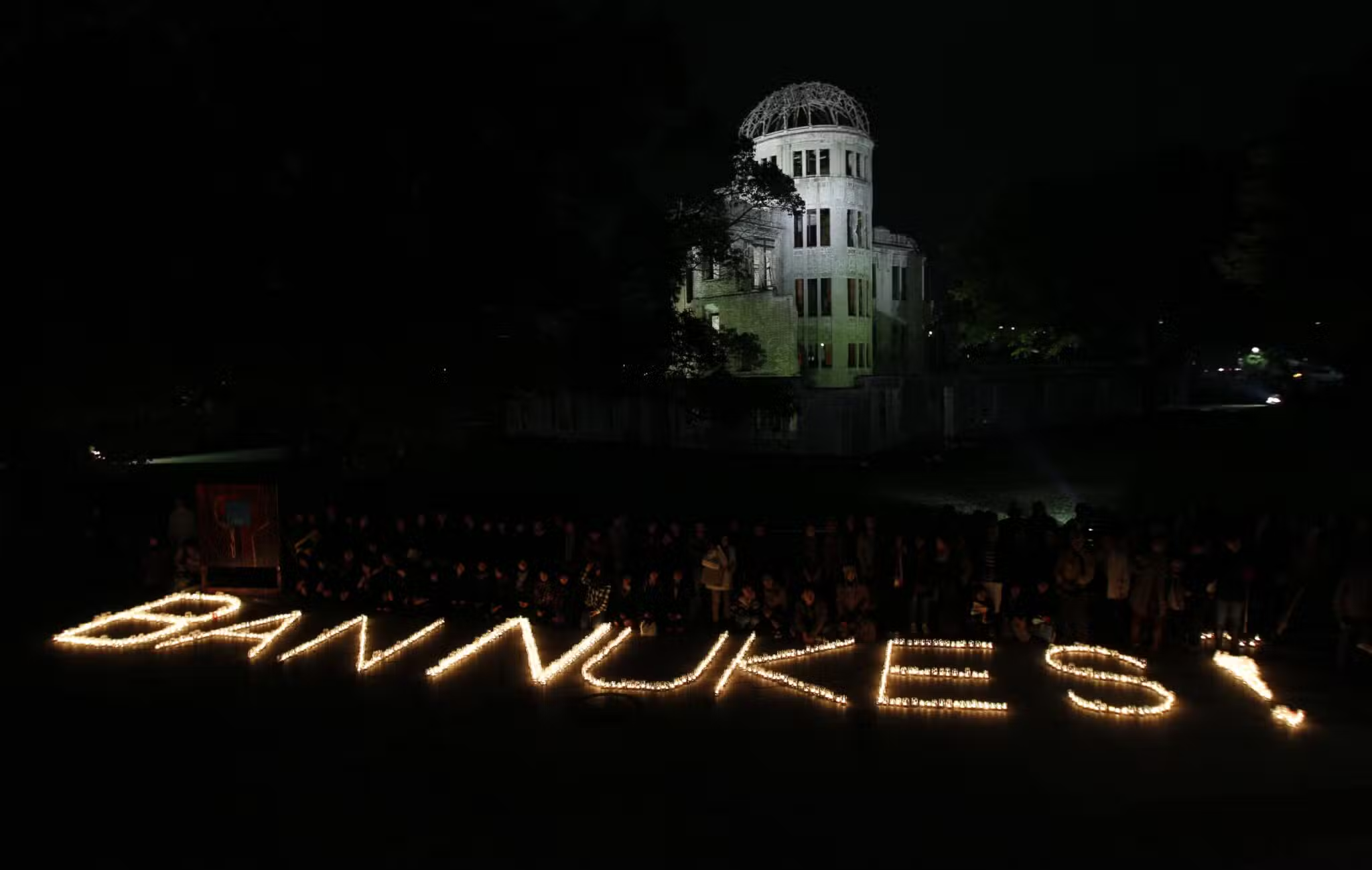What is the oldest Marian shrine in the United States?
The Shrine of Our Lady de la Leche at Mission Nombre de Dios in St. Augustine, Florida, was built in 1615. The devotion to Mary as the nursing mother of Jesus and the patron of a safe childbirth began in Spain in the 1590s. King Philip III’s original statue given to a church in Madrid was destroyed in 1937 during the Spanish Civil War.
Devotion to the nursing mother of Jesus in Bethlehem dates to the fifth century. The current Milk Grotto shrine near the Basilica of the Nativity was built in 1872 on the site of a much earlier church. The city of St. Augustine was founded on August 28, 1565 (feast of St. Augustine of Hippo), and the first Mass was celebrated on September 8 (feast of the birth of Mary).
Over time, the Franciscans, Jesuits, and Spanish diocesan priests established 45 missions from present-day Miami to Chesapeake Bay, Maryland. Several of the southernmost missions (extending westward to Pensacola) were destroyed by British soldiers by 1763.
Near the shrine of Our Lady of La Leche stands a 208-foot stainless steel cross and Prince of Peace votive church, both marking the 400th anniversary of St. Augustine’s founding. The current shrine, which dates to 1915, holds about 30 people. More information is available at MissionandShrine.org.
I found out my coworker was reading and sharing private emails from her boss about personal company matters. I felt compelled to let our human resources office know. Now I am feeling guilty and anxiety-ridden that this person might lose her job. Was I right to report her? Should I simply let it go?
As far as I know, most employee contracts have a clause about not sharing a company’s proprietary information. Strictly speaking, this may not have been proprietary information (patents, trademarks, and so forth), but it could potentially cause great harm to the company if publicized.
When I consulted Father Dan Kroger, OFM, our publisher who has a doctorate in ethics, he agreed with this response. You may understandably feel some guilt if your coworker loses her job over this, but your only alternative may be to lie, saying in effect, “It’s no big deal.” Can any genuine virtue be built on a lie to oneself?
I have been struggling recently with anger over the situation in Ukraine and especially Vladimir Putin’s veiled threats of nuclear retaliation. Can you provide some tips on how to turn anger into love, or is it too soon for such an approach?
Yes, it’s very frustrating when people who should know better use religion to cloak its abuse. That said, this situation can be handled many different ways. I recommend that you pray for God to show those who do this the error of their ways.
Remember: The anger that you describe has only the power that you give it. You are, of course, perfectly free to name that abuse for what it is and take whatever constructive action you identify.
A converted heart will not bring back or heal any of the people murdered or wounded in this conflict, as well as those who have lost property or their livelihoods. Although you may not have the consolation of seeing the guilty party recognize their misuse of religion to justify war, accepting my suggestion above will not put your life “on hold” (so to speak) until that gross injustice is recognized by the people committing it.
May the Lord be your strength in finding a response that will help those suffering innocently without destroying you in the process. An appropriate anger can be a great asset in naming and correcting systemic injustice, especially that carried out in the name of religion.
Prophets in the Old Testament denounced similar abuse almost 800 years before the birth of Christ. Other prophets have made updates to those denunciations.
A friend was aghast at your response about whether offering up your sufferings can release a soul from purgatory. Your statement that praying for those souls “does not force God’s hand on their behalf” suggests that such prayers do not benefit the holy souls. Has she been wasting her prayers?
After explaining why purgatory now exists, I wrote: “Praying for deceased people is good, but it does not force God’s hand on their behalf. We cannot project our concept of time onto God.”
I stand by what I wrote. Intercessory prayers are highly commendable (and recommended in Scripture), but not because they provide information that God may have forgotten. No prayer can put God in debt to a human being. We pray because we are always in debt to God for our very life and those of others. No one’s intercessory prayers can twist God’s arm until God, so to speak, cries, “Uncle!”
Your friend’s prayers, however, are definitely not “wasting her resources, time, and prayers for a lost cause.” Someone’s honest prayer cannot change God, but it definitely changes the person praying—in this case, making your friend more compassionate to living people she encounters.
In answering a question about whether married couples will know one another in heaven (Mt 22:30), Jesus cautioned his questioner not to assume that heaven is simply an extension of earthly life. Similarly, we cannot project onto God something that would be a limitation on God. All human language about God (including mine!) is approximate, by analogy. It can never totally capture the gracious mystery of God.








